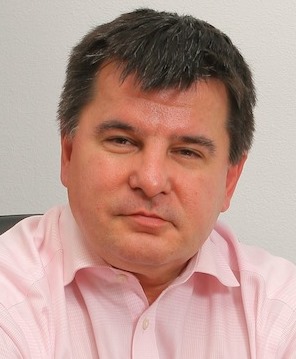|
|
 Taras KuzioRussia’s hybrid war as international corporate raidingThe escalating
hostilities around Donetsk airport, already dubbed Europe’s new Stalingrad,
could lead to the first
full-scale war between European countries since World War II. In
the event that the fighting
escalates, Petro Poroshenko, Ukraine’s president, has prepared a decree that would institute
a state of emergency as a prelude to moving
from an anti-terrorist operation to a state of
war. Eighty per cent of
Ukrainians already believe their county
is at war
with Russia. Grigory Karasin,
Russia’s deputy foreign minister, said this week it would be “the biggest,
even strategic mistake of the
Ukrainian authorities to bank on
a military solution to the crisis”
and warned: “This may lead
to irreversible consequences for Ukrainian statehood.” The depth
of the international
crisis can be seen in
the gulf that exists between
western countries that believe Ukraine
has a right to defend its
territorial integrity and a Russia that
refuses to recognize it. Russia’s hybrid
or non-linear war is an
international extension of the corporate
raiding that has become prevalent
in its domestic
environment, where there is little
rule of law.
Six years ago, Russia was described
as a “mafia state” and recent developments point even more
to this conclusion. Massive corporate
raiding of Ukrainian state and private assets has followed Russia’s
annexation of the Crimea. As Mark
Galleotti, an expert on transnational
crime and security, argued in an
article for Vice, organized
crime is closely intertwined with the separatist
fighters. Russia’s hybrid
war introduces virtuality to its
conduct of international affairs that is an
extension of its virtual domestic
politics. Deep levels of cynicism,
doublespeak and duplicity underpin fake parties, virtual
elections (like those held in
the Soviet Union) and surrogate
proxy forces. Since signing
the Minsk peace accords in
September, Russia has built up
separatist forces in Ukraine as
civilian and military casualties have continued to mount. While
Moscow blames Ukraine for undermining
the peace process, the EU says Russia
has violated its OSCE commitments and separatists have taken control
of an additional
500 square kilometres of territory since
September. The BBC and
other news outlets have shown
Russian marines fighting at Donetsk
airport, as Moscow continues to strenuously deny that its
forces are present in Ukraine.
Meanwhile, Russia’s foreign ministry issued a statement supporting separatist
claims that the Minsk accords
provided for their control over
Donetsk airport. Russia’s duplicitous
hybrid war is arming the
separatists to the teeth, sending
its troops to lead their
attacks on Ukrainian forces and training insurgents
for attacks throughout Ukraine. This week, a bomb
in Kharkiv caused 20 casualties and in Zaporizhhya
a train was derailed as it
was crossing a bridge. Russia is warning Ukrainians
of the consequences
of defending their territorial integrity; a policy Russia demanded be upheld in
Chechnya and Kosovo. Russia’s approach
has three pitfalls. First, Russia
cannot hope to defeat Ukraine
using limited numbers of its
troops in a hybrid war. At
the same time, if Moscow
were to commit
tens of thousands
of troops it could no
longer hide their presence and further western
sanctions would follow. Ukrainian officials estimate that there are
8,000 Russian troops on Ukrainian territory
with more moving across
the border. Second, the rate of growth of Russian casualties, as in the 1980s when Soviet casualties in Afghanistan were growing at a slower pace, will eventually lead to political instability. Russian casualties continue to rapidly grow, as witnessed by overflowing morgues in the Donetsk region and casualty figures collected by Russian NGOs and independent bloggers. Oleg Yarchuk has calculated in detail Russian casualties of 5,665 dead, 2,759 wounded and 2,834 missing in action in less than a year’s combat.Third, Russia’s
hugely popular annexation of the
Crimea and hybrid war in
the Donbas has opened up
a Pandora’s box of extreme Russian
nationalism. If Vladimir Putin, Russia’s president, were to back
away from his hybrid war
some of these
Russian nationalists could return to
Russia with their weapons and
seek to effect
regime change. This could be
dangerous if Russia’s socio-economic situation continues to deteriorate as the oil
price falls. Extreme right-wingers from the
Russian Party of National Unity,
cossacks, monarchists who desire the
restoration of the tsar and
empire, Orthodox Holy Warriors and
Stalinists provide an eclectic and
combustible mix of volunteers in
the Donbas, a region that until
2014 had been without manifestations of Russian nationalism
and voted for the Communists
and the oligarchic
Party of Regions. These volunteers see the Donbas conflict
in apocalyptic terms as a “holy
war”. These Russian
extremist groups share three similarities.
They believe Putin is too
“soft” and Russia should fight
openly, not in a hybrid war,
and annex the Donbas. They
are Ukrainophobes who believe the
Ukrainian nation does not exist;
an analogy in the 1930s would
be that of
Germany’s Nazis looking at Austria.
Finally, they are anti-western and see the
Euromaidan Ukrainians as “puppets” in
the hands of Washington and
Brussels. The Russian-led renewal of separatist
attacks in the Donbas has
revealed just how naïve was the attempt
by Federica Mogherini, the EU’s foreign policy
chief, to scale down sanctions
by exchanging values for interests.
Meanwhile, the arrest of
five Russians in France shows to what degree the conflict
in Ukraine can spread to
other parts of Europe. Taras Kuzio
is a research associate at the
Centre for Political and Regional
Studies, Canadian Institute for Ukrainian
Studies, University of Alberta and
non-resident fellow at the Center
for Transatlantic Relations, School of Advanced International
Relations, Johns Hopkins University. |